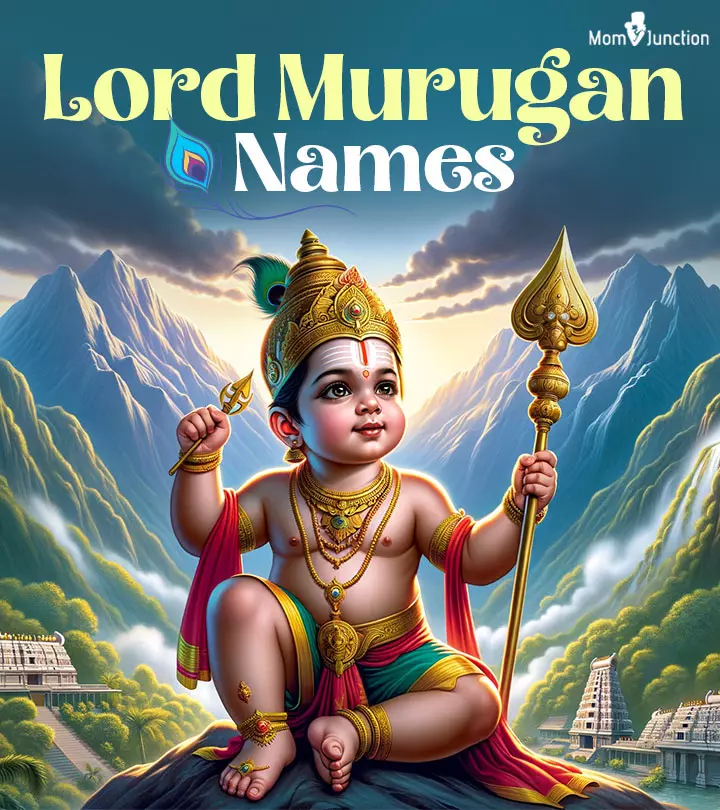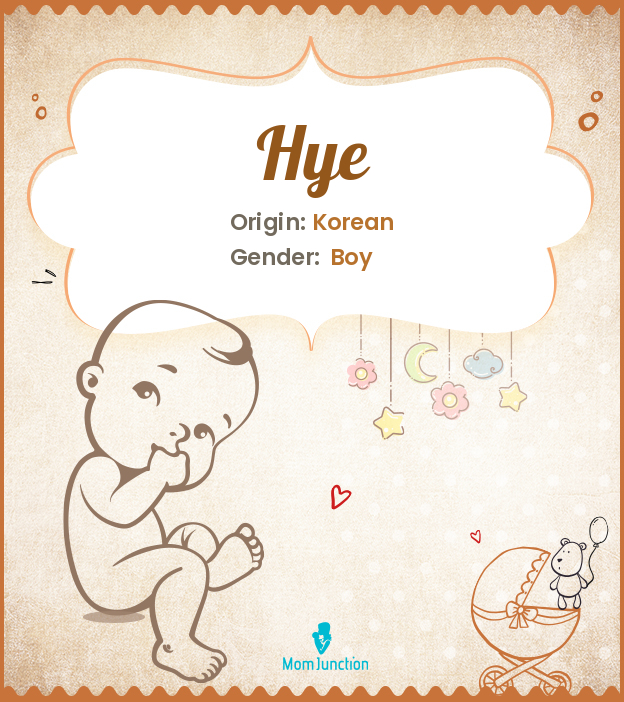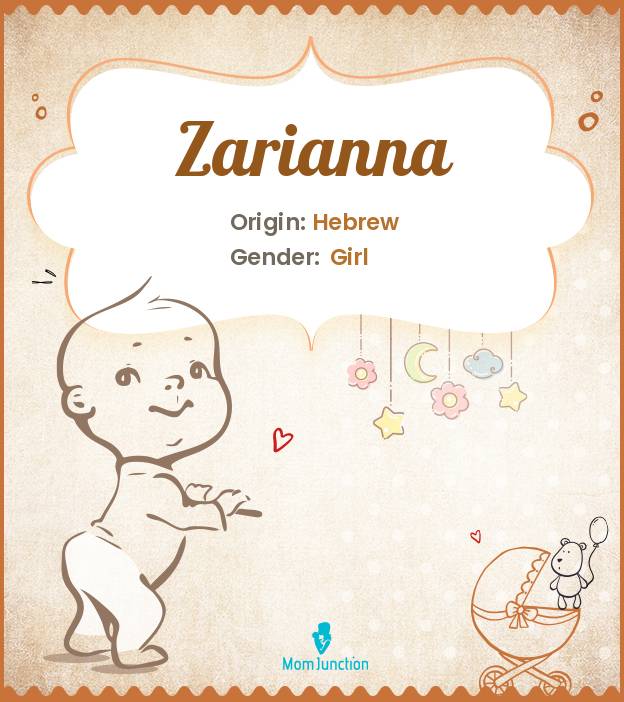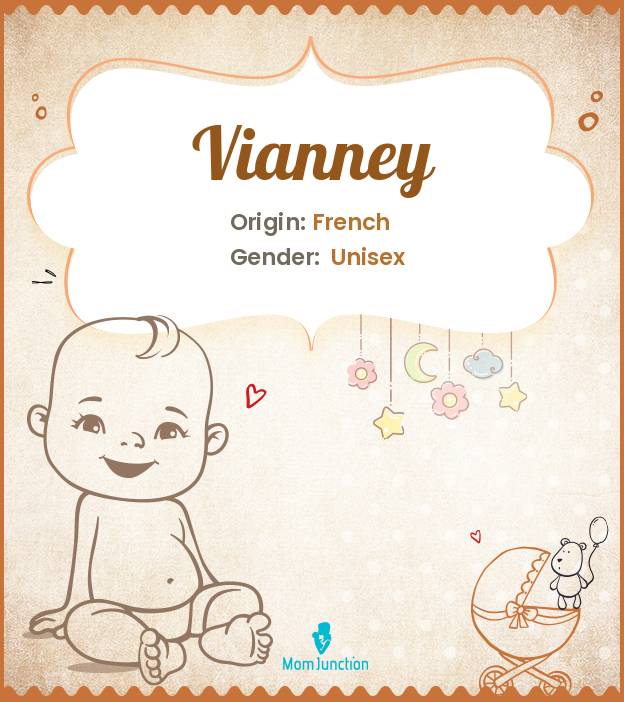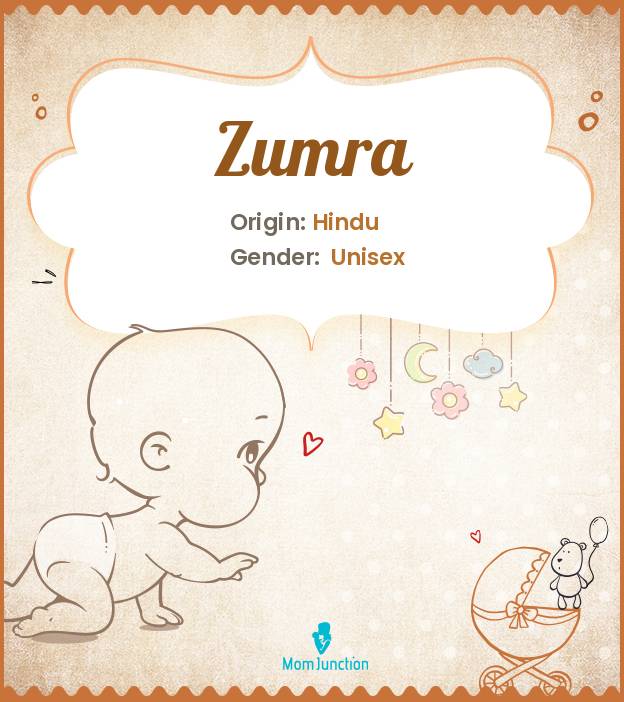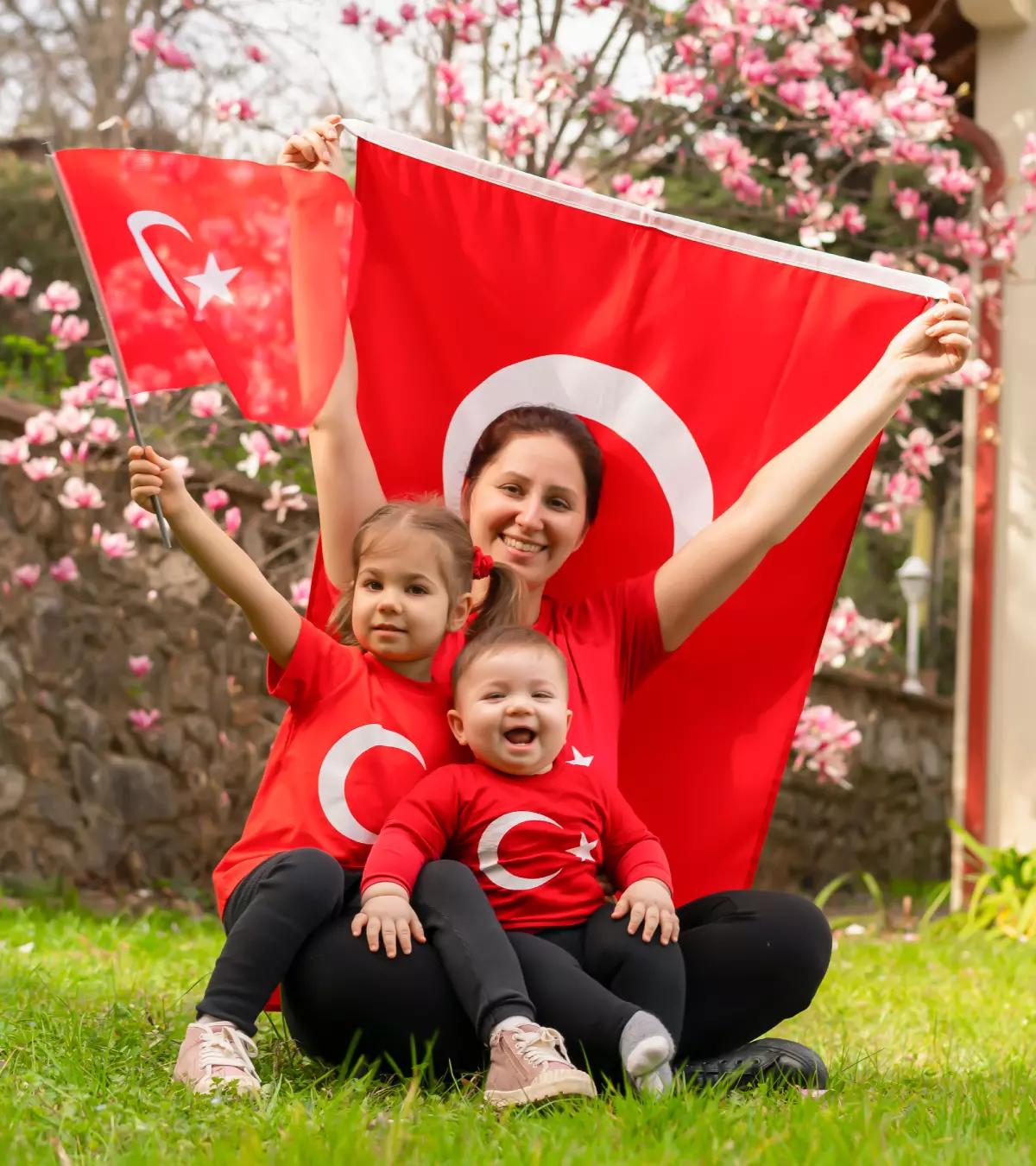
Image: Shutterstock
In Turkish culture, last names represent a family’s background and social patterns. Similar to Western traditions, Turkish last names are usually inherited and passed down from generation to generation. The Turkish also have their naming conventions—from the usual practice of women taking their husband’s family name upon marriage to Kurdish naming customs of taking their grandfather’s personal name or tribe’s name as a surname (1). Each Turkish surname has a story hidden behind it. These surnames reflect the Turkish way of life, societal roles, and their connection to ancestry and offer a glimpse into their rich culture. Come with us on a trip as we explore the fascinating history and stories of Turkish last names in this post.

Key Pointers
- Many Turkish surnames have literal meanings rooted in Turkish language, traditions, and geography.
- Turkish surnames often reflect occupations, characteristics, or natural elements.
- Some Turkish surnames have roots in Arabic, Jewish, and Persian names.
150+ Beautiful And Unique Turkish Last Names
Turkish last names are like colorful threads connecting individuals to the intricacies of life. Each name contains a story, reflecting the jobs people did and the nature around them.
Old And Ancient Turkish Last Names
From birds in the sky to animals on the ground, these names are windows into Turkey’s rich history and way of life.
1. Açıkgöz
Açıkgöz is a Turkish surname probably derived from a nickname. It is often given to someone ‘crafty,’ ‘cunning,’ or ‘nimble.’ It can be pronounced as ‘a-chuk-GUUZ.’
2. Akbaş
A few Turkish surnames have literal meanings. Akbaş means ‘white head.’ Hatice Akbaş is a Turkish world champion female boxer. She has won numerous medals in the bantamweight division, even a gold medal at the European Women Youth Boxing Championships held in 2016.
3. Akçam
The surname has its roots in Turkish and is made up of two Turkish words. Taken from ‘ak,’ which means ‘white’ and ‘çam,’ which refers to a ‘pine tree.’ The meaning of the name can be interpreted as ‘white pine tree.’
4. Akpınar
The Turkish surname Akpınar is made up of two elements, ‘ak,’ meaning ‘white’ and ‘pınar,’ meaning ‘spring’ or ‘fountain. The complete meaning of the name can be translated as ‘white fountain’ or ‘white spring.’
5. Aksoy
The Turkish last name Aksoy is composed of two elements, ‘ak’ and ‘soy,’ which when combined means ‘white lineage’ or ‘white ancestry.’
6. Akyol
The surname Akyol carries a figurative meaning. It comes from the Turkish word, ‘ak,’ which means ‘white’ and ‘yol,’ which means ‘path’ or ‘way.’ The complete meaning of the name can be understood as ‘white path,’ but most probably ‘honest path.’
7. Albayrak
The Turkish surname carries a specific meaning, which is ‘red flag.’ It is borne by Berat Albayrak, a Turkish politician and businessman. He was a member of Parliament from Istanbul in the 25th, 26th, and 27th legislative sessions. He also served as the Minister of Energy and Natural Resources in the Government of Turkey.
8.Arap
You can probably guess what this surname means. With a slight respelling, Arab usually denotes someone with Arabic roots and means ‘Arab.’
9. Aslan
It is a surname derived from the personal name, Aslan. It carries a fierce meaning belonging to the king of the jungle which is ‘lion.’ Reza Aslan is one noticeable bearer of this name. He is an Iranian-American scholar of sociology of religion, writer, and television host. He has published four books on religion and won numerous awards.
10. Atatürk
Atatürk is a prestigious surname given to the first President of Turkey by the Turkish Parliament in 1934. The name means ‘Father of the Turks.’
11. Badem
The Turkish surname may sound like a treat because it carries a connotation that means ‘badam’ or ‘almond.’
12. Balaban
The surname can be perfect for someone who is swarthy. In Turkish, the name means ‘robust,’ ‘burly,’ or ‘large.’
13. Barış
The Turkish surname is usually written with a dotless ‘i.’ It is taken from a personal name and carries a beautiful connotation of ‘peace.’
14. Başaran
A Turkish surname that fits someone who is always on the go. It can be pronounced as ‘ba-sha-RAN’ and it means ‘accomplisher’ or ‘achiever.’
15. Başoğlu
A powerful Turkish surname that means ‘son of the leader.’ It comes from the Turkish word, ‘baş,’ which means ‘leader’ or ‘head.’
 Did You Know?
Did You Know?Before the Republic of Turkey implemented the Surname Law on 21 June 1934, the majority of Turkish citizens did not have last names.
16. Begüm
The Turkish spelling of the Muslim surname Begum, Begüm is derived from the Turkish title ‘beg,’ which means ‘chieftain.’
17. Boşnak
The identifier can be translated to Bosniak. As a surname, it was derived from a major ethnic group that adopted Islam during the Ottoman Empire.
18. Burakgazi
It is composed of two Arabic elements, the first is taken from the personal name, Burak, which means ‘lightning.’ It is believed that Burak or Buraq is the name of a legendary creature who transported Prophet Muhammad. The second element ‘ghazi,’ can be translated to ‘warrior.’ The complete meaning of Burakgazi can be understood as ‘lightning warrior.’
19. Candemir
The surname is not pronounced the way it is spelled. It can be enunciated as ‘JAN-deh-meer’ and it means ‘iron soul.’
20. Cebrail
Taken from the Turkish given name Cebrail, it is another form of Gabriel. It means ‘God is my strong man.’ Cebrail can also be spelled as Cebraîl or Cibrayîl.
21. Çeçen
Çeçen is a surname derived from a nickname. It is usually given to those who are of Chechen descent but residing in Turkey. This surname can also be spelled as Chechen.
22. Çerkez
This Turkish surname can also be written as Čerkez. It is taken from the Turkish word ‘çerkez,’ which refers to someone who is Circassian or Adyghe. These are ethnic groups that belong to the Caucasus.
23. Cihangiroğlu
The surname is taken from the given name Cihangir combined with the Turkish prefix ‘oğlu,’ which stands for ‘son.’ This surname means ‘son of Cihangir.’
24. Dağlı
Dağlı can be pronounced in two different ways, ‘da-LEE’ and ‘DA-lu.’ It was probably used as a nickname for someone who climbs mountains or a highlander.

25. Dinç
The sparkling and vibrant surname means ‘energetic,’ ‘vigorous’ or ‘active.’ It might have been given to someone full of energy all the time.
26. Durmaz
Taken from the Turkish word, ‘durmak,’ it means ‘to stop,’ ‘to remain,’ or ‘to persist.’ The name is borne by Turkish basketball player, Berkan Durmaz. He plays for the Beşiktaş Emlakjet of the Basketbol Süper Ligi (BSL) and the EuroCup.
27. Ersoy
The Turkish surname comprises two elements and when combined it means ‘descendant of a soldier.’
28. Güven
Güven was probably chosen as a nickname for someone trustworthy. In simple terms, Güven means ‘trust’ or ‘confidence.’
29. Güzel
Taken from a given name, Güzel means ‘beautiful’ or ‘pretty’ in Turkish. This last name is borne by the former Minister of Education, Youth and Sport of Turkey. Hasan Celal Güzel is both a politician and a journalist.
30. İnal
Everyone can depend on someone with this surname. It comes from a nickname that means ‘trusted’ or ‘believed.’
31. İşbaşaran
Who would not want a surname such as İşbaşaran? It is composed of two Turkish words that mean ‘one who is successful with work.’
32. Işık
The short and airy surname has Turkish roots and it means ‘light.’ It can also be used as a given name. One notable bearer of Işık is Ayhan Işık. He is considered one of the leading actors in Turkey in the 1950s and 1960s. He was a pioneer of Turkish cinema.
33. Kahraman
The surname may be Turkish but it has its roots in Persian. It can be transliterated to ‘hero.’
34. Kalkan
A Turkish surname that derived its meaning from a nickname. It means ‘shield’ and can be given to someone who is like a protector or a defender.
35. Karabulut
The meaning of this surname may sound a little ominous, but its interpretation depends on the bearer. Karabulut means ‘black cloud,’ which when looked at with a positive mind can be the bringer of rain that nourishes mankind.
36. Karakaş
Karakaş can also be spelled as Karakas. It is composed of two Turkish elements, ‘kara’ and ‘kaş,’ which means ‘black’ or ‘dark,’ and ‘eyebrows,’ respectively. When combined, this surname means ‘black eyebrows.’
37. Kaya
The Turkish last name derived its meaning from the terrains of the region. It means ‘rock’ or ‘cliff.’
38. Küçük
It is probably derived from a nickname. This adorable-sounding surname means ‘small’ in Turkish.
39. Kundakçı
The surname is considered to be quite specific in its meaning. The name comes from the Turkish word ‘kundak,’ which means ‘stock’ or the ‘wooden part of a rifle.’
40. Kunt
The meaning of the name may have been derived from the mountain range in Asia which is supposedly where the people of Turkey originally came from. It means ‘solid.’
41. Lepsy
If you are looking for a surname with a rich history, this is it. Lepsy is a rare Turkish surname that dates back to the Ottoman Empire. The exact meaning remains unknown, but there is a possibility that it means ‘one who comes from the edge of the lake.’ Over the years, as the Turkish population moved westward, it became quite similar to a Czech word that means ‘over’ or ‘better.’
42. Macar
A surname that is possibly derived from a nickname. In Turkish, Macar denotes someone who has Hungarian roots.
43. Ottoman
Some names have distinct qualities about them that can easily help you guess where they are from. Ottoman is the Latin form of the French given name, Osman. It once belonged to the great Osman I, the founder of the Ottoman Empire.
44. Öz
It can also be spelled as Oz. This Turkish surname arose from a nickname that can indicate the ‘core’ or ‘essence’ of something or someone.
45. Özbekoğlu
The patronym is also considered a habitational surname. It carries the meaning of ‘son of an Uzbek.’ An Uzbek is someone who comes from Uzbekistan.
46. Özdemir
The name is derived from two Turkish elements, which means ‘pure iron.’ İbrahim Özdemir is one of the notable bearers of the name. He is a Kurdish philosopher, academic, and Islamic environmentalist. He is also the Director General of the Department of Foreign Affairs, the Ministry of National Education in Turkey.
47. Özkan
Özkan is a Turkish surname with a powerful meaning behind it. It means ‘pure blood.’ A notable bearer of the surname is Sibel Özkan. She is a Turkish weightlifter who competes in the Women’s 48 kg division. She won a gold medal in the World Championships held in Antalya in 2010.
48. Öztürk
The very essence of a Turkish surname is reflected in Öztürk. It is taken from a given name that translates to ‘purely Turk.’ The surname is borne by a Turkish politician and bureaucrat, Sebahattin Öztürk. He served as the Minister of the Interior of Turkey between March and August of 2015.
49. Peynirci
Turkish surnames can be oddly specific in their meanings. Take Peynirci for example, it means ‘cheese.’
50. Sadık
The surname comes from the given name, Sadık. It is also the Turkish spelling of the Arabic personal name Sadiq. In Arabic, the name carries the connotations of being ‘true,’ ‘sincere’ or ‘loyal.’
51. Sakarya
The Turkish surname comes from two Turkish words, ‘sakar,’ which means ‘bitter’, and ‘ya,’ which means ‘river.’ The combination of the two words can be interpreted as ‘bitter river.’
52. Şimşek
This Turkish surname is inspired by a powerful force of nature. It means ‘lightning’ or ‘a flash or lightning.’

53. Solak
A surname inherited from a nickname. In Turkish, the word ‘solak’ is commonly used for someone who is ‘left-handed.’
54. Soydan
The modern Turkish surname, Soydan means ‘one who has come down from good ancestry.’ Also, it simply means ‘lineage’ or ‘ancestry.’
55. Suleymanoglu
The name can be quite a mouthful to pronounce, but Suleymanoglu is taken from the given name Süleyman. When it is combined with the Turkish suffix ‘oğlu,’ it means ‘son of Süleyman.’
56. Teke
The surname carries two meanings in Turkish. It can indicate someone who belongs to Turkey and can also be categorized as a surname inspired by living things.
57. Tiryaki
The Turkish surname is likely taken from a nickname. It can either mean an ‘addict’ or an ‘opium user.’
58. Turan
Turkish surnames are also based on habitation or location. This surname is taken from a place named Turan. It is a region where the majority of the nomadic Iranian-Turanian people reside. The meaning of the place name can be understood as ‘land of the Tur.’
59. Türkmen
The surname is not to be taken at face value. It does indicate someone who is from present-day Turkmenistan, but it can also mean ‘almost Turk,’ ‘Turk faith,’ ‘belief,’ or ‘religion.’
60. Türkmenoğlu
It can also be written as Turkmenoglu. The last name means ‘son of a Turkmen’ and could be possibly taken from a region known as Turkmenistan.
 Trivia
TriviaBack in the days when Turks did not have official surnames, they adopted their father’s given names combined with the suffix ‘oğlu’ or ‘oghlu.’ You may find many Turkish surnames spelled this way. The literal translation of ‘oğlu’ is ‘son of.’
61. Türkoğlu
The surname is extremely similar to Türkmenoğlu, but there are differences between the two. Türkoğlu means ‘son of a Turk,’ whereby Turk implies someone who is a citizen of Turkey.
62. Ulusoy
This last name sings praises regarding one’s roots. It comes from two Turkish elements, ‘ulu’ and ‘soy,’ which means ‘supreme,’ ‘great,’ or ‘exalted,’ and ‘ancestry’ or ‘lineage,’ respectively. The full meaning of the name can be understood as ‘great lineage.’
63. Uzun
Turkish surnames often take inspiration from sizes or measurements. In this case, Uzun means ‘tall.’
64. Yigit
This surname comes from a given name of the same spelling. In Turkish, it means ‘brave.’
65. Yıldırım
Like a powerful crack in the sky, this Turkish surname is taken from a given name. It carries the connotations of lightning. Binali Yıldırım served as the 27th Prime Minister of Turkey from 2016 to 2018.
66. Yıldız
As unique and as bright as the lights in the sky, this Turkish surname carries the meaning of ‘star.’
67. Yılmaz
A surname for the brave and mighty. Yılmaz, the Turkish last name, is usually spelled with a dotless ‘i’ and is taken from the personal name, Yılmaz. It means ‘dauntless’ or fearless’ in Turkish. Atıf Yılmaz Batıbeki is a Turkish film director, screenwriter, and producer. He directed 119 movies and wrote 53 screenplays. He is also the recipient of numerous awards and titles in his field.
68. Zengin
The opulent and lavish surname carries Persian roots. In Turkish, it means ‘rich’ or ‘wealthy.’
69. Zorlu
Another impactful surname in Turkish, Zorlu means ‘strong’ or ‘powerful.’ It is borne by Ahmet Nazif Zorlu, a man who mirrors the meaning of his name. He is a Turkish businessman, a billionaire, and the chairman of Zorlu Holding
Turkish Last Names Inspired By Living Things
Many Turkish surnames have emerged as nicknames. Most of them in this category are inspired by birds, animals, and plants. They could have been bestowed on someone because of their similarities with specific flora and fauna.
70. Akkuş
A combination of two Turkish words, Akkuş is taken from ‘ak’ and ‘kuş,’ respectively. The meaning of the name can be understood as ‘white bird.’
71. Atmaca
The bird-inspired surname carries a special meaning. It means ‘hawk,’ but specifically refers to the sparrow hawk.
72. Balık
This Turkish surname is commonly seen without a dotted eye and means ‘fish.’
73. Bata
The Turkish surname carries a probable meaning of ‘duck.’ Its meaning can also be taken from the Turkish word ‘bata,’ which means ‘drinking place.’
74. Bülbül
Inspired by the songbird, Bülbül is a Turkish last name that means nightingale.
75. Çakal
The surname is pronounced as ‘cha-KAL.’ If you keep saying it out loud numerous times, you will realize it sounds like a sly and wily animal. Çakal is a Turkish surname that means ‘jackal.’

76. Ceylan
It is a Turkish surname that can also be used as a given name. It carries an elegant meaning of ‘gazelle.’
77. Çiçek
Some surnames are derived from the beautiful flora of the land. Çiçek means ‘flower’ or ‘blossom’ in Turkish.
78. Doğan
The Turkish last name can be connected to two-winged creatures. It can mean ‘hawk’ or ‘falcon.’
79. Erdoğan
A surname inspired by a given name by the same spelling. It is composed of two Turkish elements, ‘er,’ which means ‘man,’ ‘hero,’ or ‘brave,’ and ‘doğan,’ which translates to ‘hawk.’ This surname is borne by former Prime Minister and current President of Turkey, Recep Tayyip Erdogan.
80. Geyik
The Turkish surname is probably derived from a nickname. It is given to someone who has similar characteristics or qualities to that of a deer or a stag.
81. Gül
The short and sweet surname has Persian roots. It is also an Azerbaijani and Uyghur last name, and it means ‘rose.’
82. Hazar
Hazar is Muslim and Turkish last name. It carries a beautiful meaning inspired by the songbird ‘nightingale.’
83. Horoz
Like an early riser or nature’s alarm clock, Horoz is a Turkish last name that means ‘rooster.’
84. Kaplan
The surname is popular not only in Turkish communities but also in Jewish, German, and Yiddish populations. In Turkish it means ‘tiger.’ While in German and Yiddish, Kaplan is used as an occupational surname for someone who is a chaplain.
85. Karaca
The surname is associated with the reddish and grey-brown roe deer. It is commonly found in colder climates.
86. Karakoç
The Turkish surname evokes a sturdy and strong feeling. It means ‘black ram.’ Ahmet Sezai Karakoç was a Turkish writer, poet, thinker, and community leader. His work focused on connecting traditional Islamic beliefs and modern poetic techniques.
87. Karakuş
A name that combines two Turkish elements means ‘black bird.’ The meaning is taken from ‘kara,’ which means ‘black’ and ‘kuş,’ indicating ‘bird.’
88. Karga
It was inspired by a feathered friend, the crow. This Turkish surname was probably given as a nickname to someone who shared similarities with crows.
89. Kartal
The Turkish surname probably emerged as a nickname. It is given to someone who resembles the characteristics of an eagle.
90. Keklik
A Turkish surname associated with the bird that can lay the biggest clutches, almost 10-15 eggs, Keklik means ‘patridge.’
91. Koç
A short but powerful name. Probably used as a nickname, Koç is inspired by the male sheep or ram. This surname is borne by one of the most influential business tycoons in Turkey. Vehbi Koç is the founder of the Koç Group, which focuses on different fields such as automotive, energy, finance, and more.
 Quick Fact
Quick FactIn Turkey, there are two ways to address men and women. Men are usually addressed by their given name combined with the word ‘Bey,’ and women are addressed by their given name along with the word ‘Hanim.’ For example, Emre Bey or Gizem Hanim (1).
92. Kocabaş
If you have seen an orange-brown with a black eyestripe bird, a bib, and a massive bill, it can be identified as a hawfinch. In Turkish, the surname Kocabaş is related to this fowl.
93. Kurt
The extremely Western-sounding last name is in fact, a Turkish surname. It means ‘wolf.’
94. Kurtoğlu
The original meaning of this surname is taken from the Turkish word ‘kurt,’ meaning wolf. Its complete meaning can be interpreted as ‘son of the wolf.’
95. Kuş
The three-letter Turkish surname has a simple meaning of ‘bird.’
96. Kuzu
The surname is for the gentle and soft-hearted. It is taken from the Turkish word ‘quzı’ for ‘sheep.’
97. Saka
Saka is not only a Turkish surname but also a Japanese surname. In Japanese, the last name means ‘slope’ or ‘hill.’ But in Turkish, the name is taken from a nickname that means ‘goldfinch.’
98. Sungur
Turkish surnames have different ways to refer to a type of bird or animal. Sungur is a surname that means ‘falcon.’

99. Tilki
The surname is usually given as a nickname for someone as clever and witty as a fox.
Turkish Last Names Inspired By Occupation
Turkish surnames often reflect occupations, highlighting the different roles people played, ranging from farming to trading. From the humble laborer to the prosperous merchant, each name honors the contributions of individuals across all walks of life.
100. Agha
The Turkish surname was initially used as a title for a civilian or a military officer. It means ‘chief,’ ‘master,’ or ‘lord.’
101. Arabacı
The occupational surname is given to someone who performs the job of a driver or a seller and maker of carts. The meaning of the last name is taken from the Turkish word ‘araba,’ which means ‘carriage’ or ‘cart.’
102. Arıcı
The sweet and short Turkish surname is usually given to beekeepers.
103. Atıcı
Written with two dotless i’s, the Turkish surname can carry two connotations. The first meaning of Atıcı is ‘sharpshooter’ or ‘marksman.’ The second meaning is taken from a nickname, usually for someone who is a loudmouth or a braggart.
104. Atlı
Atlı can be considered a noble and outstanding last name. It is given to someone who is a horse rider or someone who knows horse riding.
105. Avcı
The strong and dominant Turkish surname can also be spelled as Avci and it means ‘hunter.’
106. Bağcı
The Turkish surname is given to someone who cultivates grapes for winemaking. It is an occupational surname for a winemaker and can be pronounced as ‘BA-ju.’
107. Baig
The Turkish surname is popular in other languages such as Persian, Urdu, Arabic, and Punjabi. Baig is more commonly found in Muslim households. It means ‘ruler,’ ‘chief,’ ‘lord,’ or ‘master.’
108. Bal
Bal is a Turkish surname that means ‘honey.’ It is often associated with beekeepers. However, Bal is also found in the Indian subcontinent, predominantly in Punjabi communities.
109. Balcı
Similar to the surname Bal, Balcı is a Turkish surname for someone who works as a beekeeper. It is taken from the Turkish word ‘bal,’ which means honey.
110. Bardakçı
The last name is derived from the Turkish word ‘bardak,’ which means ‘glass.’ It is often used as a reference for a glassmaker.
111. Bilgin
The surname carries an erudite air to it. It is inspired by a Turkish nickname which means ‘scholar,’ ‘learned,’ or ‘pundit.’
112. Binici
The occupational surname can either mean ‘a rider’ or ‘horseman.’
113. Bostancı
Turkish surnames are inspired by different occupations. Almost every profession has an occupational surname. Bostancı means ‘vegetable gardener.’
114. Çelik
A Turkish surname that carries the connotation of ‘steel.’ It is often given to someone who works as a ‘metalworker.’
115. Çoban
It is a Turkish surname given to someone in the rearing profession. Specifically, Çoban is associated with shepherds.
116. Değirmenci
A strong last name derived from a Turkish word for a mill worker or a ‘miller.’
 Point to consider
Point to considerThe Surname Law in Turkey does not allow individuals to bear last names that imply connections to foreign cultures, nations, tribes, or religions.
117. Demir
The tough surname Demir means ‘iron’ in Turkish. It is usually used for an ironworker. Mahmut Demir is one of the famous bearers of the name. He is a Turkish wrestler who won a gold medal in Men’s Freestyle wrestling at the Olympics held in 1996.
118. Demirci
The surname closely resembles Demir in spelling. It is a name given to someone who works as a blacksmith.
119. Deveci
Deveci is an occupational surname given to someone who deals with camels. It is associated with a camel herder.
120. Ekmekçi
When you think of bread, cakes, and buns, this name might come to mind. It is an occupational surname for a baker.
121. Kahveci
The Turkish surname derived its meaning from ‘kahve,’ a Turkish word that means ‘coffee.’ It is also perceived as an occupational surname for one who works as a coffee producer or coffee seller. It can also be spelled as Kahwaji, Qahwaji, or al-Qahwaji.
122. Kahya
Every single occupation deserves a last name. Kahya is given to someone who is employed as a ‘butler,’ ‘steward,’ or ‘housekeeper.’
123. Kalaycı
Kalaycı can be pronounced as ‘ka-LIE-ju.’ It is an occupational surname given to someone who is a tinsmith.
124. Kanat
Taken from the Turkish word ‘kanat,’ which means ‘bird wing.’ It is an occupational surname given to someone who deals with selling poultry.

125. Karanci
The occupational surname is associated with a merchant or someone who is involved in the transportation of goods.
126. Kasap
When you go to the market, you may come across this surname. It is given to someone who is a butcher.
127. Kaşıkçı
The surname can also be spelled as Khashoggi. It is a surname given to someone who makes spoons. It is derived from the Turkish word ‘kaşık,’ which means ‘spoons.’
128. Katırcı
The name is written with two dotless I’s. It is an occupational surname that means ‘mule.’ It is borne by someone who uses mules for transportation.
129. Koyuncu
Sheep rearing is an extensive profession in Turkey. It makes sense that an occupational surname is inspired by this profession. Koyuncu is usually associated with a sheep herder.
130. Kuşçu
A surname of Turkish origin taken from the word ‘kuş,’ which means ‘bird.’ It can be categorized as an occupational surname since it is often given to someone who deals with a breeder, a seller, or a person who trains birds.
131. Marangoz
Who do you call when tables and chairs need to be fixed? Marangoz is a surname for a joiner or a carpenter.
132. Mataracı
Taken from the Turkish word ‘matara,’ which means ‘flask.’ It is an occupational surname for a person who makes water bottles and flasks.
133. Nacar
This is the Turkish form or spelling of the Arabic surname Najjar. In Arabic, it means ‘carpenter.’
134. Nalci
The occupational surname is unique compared to others. It is given to someone who makes shoes for horses. It comes from the Turkish word ‘nal,’ which means ‘horseshoe.’
135. Pasha
The surname is an anglicized form of a Turkish last name. It can also be spelled as Pascha. In the earlier days, it was given as a title to someone in the political or military system. The bearers can be governors, generals, or dignitaries.
136. Pehlivan
It can be seen as an occupational surname that is out of the box. It is given to someone who is involved in wrestling or a ‘strongman.’ The roots of the surname go back all the way to Persian.
137. Reis
The surname is not only limited to Turkish bearers but also has German roots. It is a name given to someone with military rank.
138. Şahin
Sahin is one of the many Persian surnames that doubles as a Turkish last name. It carries the connotation of ‘hawk’ in Turkish and relates to someone who is a hawk tamer. This surname is borne by Muammer Şahin, a Turkish weightlifter. He won the gold medal in the snatch event at the 2013 Junior World Weightlifting Championships in Peru.
139. Saka
The surname can be used as both an occupational surname, as well as a surname inspired by living creatures. As an occupational surname, Saka refers to a person who sells and delivers water.
140. Saraç
The Turkish surname can be pronounced as ‘sa-RACH.’ It is given as an occupational surname to someone who is a saddler or a saddlemaker.
141. Tabak
Tabak is not limited to Turkish speakers. It is also found as a Jewish and Dutch surname. In Turkish, Tabak is a surname given to a tanner. While in Jewish, the name is used as an occupational surname for someone who sells tobacco. It is also an occupational surname in Dutch and is used for a butcher or a hog breeder.
142. Taşçı
The Turkish surname can be pronounced as ‘tahsh-JEE.’ It is given to someone who works as a stonemason or a stonecutter.
143. Taşkıran
Composed of two Turkish words, the meaning of Taşkıran is derived from ‘taş,’ which means ‘stone’ or ‘rock,’ combined with ‘kıran,’ which means ‘breaker,’ ‘destroyer,’ or ‘pestilence.’ The full meaning of the name is ‘stone breaker.’
144. Teke
Inspired by the Turkish word ‘teke,’ this surname means goat. It is often given as an occupational surname to someone who rears goats.
145. Terzi
Although it has Persian roots, Terzi is undeniably a Turkish surname. It is commonly borne by a person who sews clothes.
146. Topçu
The unique surname is used as a reference to someone who is involved with weapons and artillery. It is a last name given to a cannoneer, gunner, or artilleryman.
147. Tüfekçi
If you are looking for occupational last names that start with t, Tüfekçi is worth considering. This Turkish last name represents the profession of a gunsmith.
148. Yağcı
For those who wonder how to enunciate this Turkish last name, it can be pronounced as ‘YA-ju.’ It indicates someone who is an ‘oil seller.’
149. Yapıcı
Yapıcı is usually written with two dotless i’s. It is a surname given to one who is involved in construction work, especially a builder, maker, or constructor.

150. Yardımcı
The Turkish surname may be deemed as an occupational surname. It indicates someone who is a ‘helper,’ an ‘assistant,’ or an ‘aide.’
151. Yazıcı
The beautiful surname can also be spelled as Yaziji. It is borne by someone who identifies as a clerk or a writer.
Last names are not only identifiers in the vibrant Turkish society but are also reflections of the tradition, occupation, flora and fauna, and the social fabric of culture. It is evident that Turkish surnames take inspiration from the world around them and that is what makes them unique. These last names range from the ancestral customs of surname inheritance to gender and identity dynamics in modern Turkey. These surnames serve as unique markers that highlight the richness and diversity of Turkish heritage.
Infographic: 8 Fascinating Turkish Surnames
Turkish surnames are inspired by different elements from the world. Some surnames were given as nicknames to indicate the similarities between an individual and their characteristics to a bird or an animal. A few last names are taken directly from one’s profession, while other surnames are hereditary or patronymic. Head on to this infographic to witness the richness of Turkish last names.
Some thing wrong with infographic shortcode. please verify shortcode syntaxDiscover More Names
When you have to choose a name for your baby, a few hundreds of names may not be just enough. Keep digging our mine of baby names until you find that one precious gem.
Frequently Asked Questions
1. How do Turkish last names work?
Turkish last names are quite similar to how Western names work. They come after an individual’s first or given name. Many women often change or add their husband’s last name to their given name after marriage (1).
2. Are there exceptions to the Turkish Surname Law?
The Turkish Surname Law states that all Turkish citizens should bear fixed or hereditary surnames. Surnames that carry elements of other cultures, nations, tribes, or religions are not accepted. People who wish to use new surnames must choose one taken from the Turkish language. Clan names or tribe names are not to be used as surnames.
3. Can a person change or choose their Turkish last name?
A person may change their last name or surname according to the Turkish Civil Law and the Turkish Law on Population Services. This can be done through a court decision. As for choosing last names, Turkish citizens are bound to choose only names that are Turkish. Prior to 2013, it was customary for the eldest male in the house to choose the surname. In case of death or absence, the wife may choose the surname.
4. How are Turkish last names created?
Turkish surnames often have literal meanings. They can be taken from the topography of the region, be based on nicknames, inspired by animals, birds, and their characteristics, or simply derived from an individual’s occupation. A few examples are Kunt, a surname taken from the mountain range in Asia, Atmaca means hawk, Ceylan means gazelle, and Terzi means tailor.
5. What are some examples of famous Turkish families and the meanings of their surnames?
Turkey has many well-known families with interesting last names. Two notable examples are the Koç family, whose surname means ‘ram’ in Turkish, and the Sabancı family, a wealthy business family whose name is derived from ‘saban,’ meaning plow.
References
Discover Turkish Last Names & Their Meanings
Watch this video to uncover fascinating Turkish last names’ meanings and origins. Learn cultural insights and popular surname examples. Dive in and discover your family’s heritage now.
Community Experiences
Join the conversation and become a part of our nurturing community! Share your stories, experiences, and insights to connect with fellow parents.
Read full bio of Benidamika J Latam
Read full bio of Shikha Thakur
Read full bio of Reshmi Das








